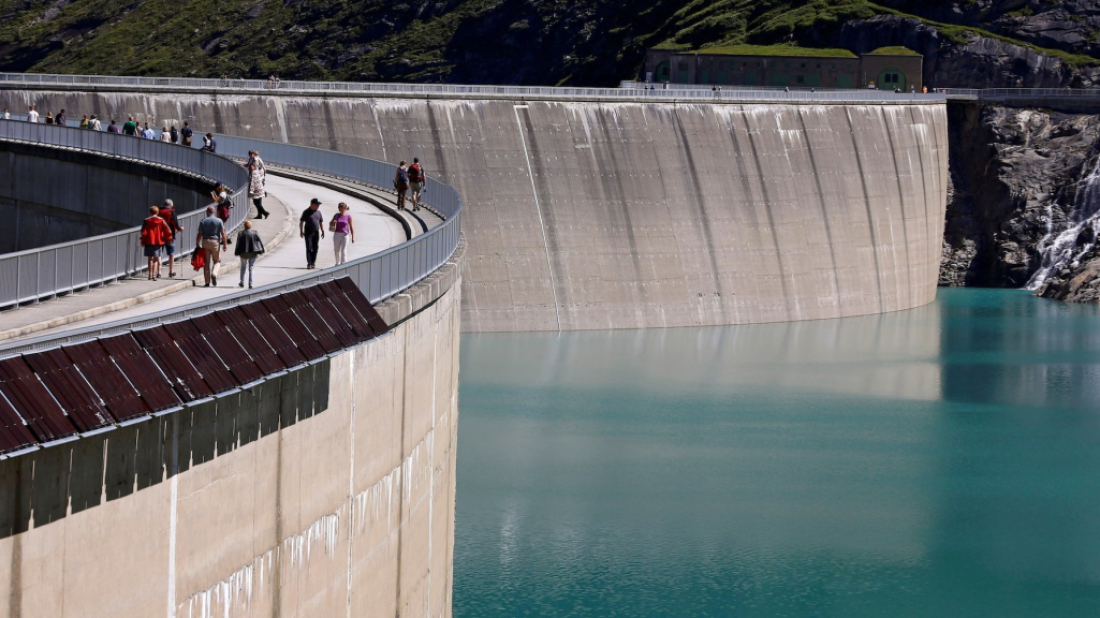live Israeli military says it has launched fresh strikes on Tehran and Beirut: All the latest news on the Iran strikes
The Israeli military has begun a new wave of strikes on Tehran, it said late on Monday. The strikes came after it issued...

In a significant step toward regional water cooperation, Kazakhstan, Tajikistan, and Uzbekistan have signed a protocol for the shared operation of the Bahri Tochik Water Reservoir from June to August 2025, during the region’s critical vegetation and irrigation period.
The agreement was formalized in Dubai on the sidelines of the International Glaciers Protection Conference, Kazinform News Agency reported.
The accord was signed by the water resources ministers of the three Central Asian nations and outlines a detailed schedule for water usage and distribution, aimed at ensuring equitable and efficient allocation among the riparian states.
Under the protocol, Kazakhstan will receive 491 million cubic meters of water during the peak agricultural season. The agreement seeks to mitigate regional water stress and improve coordination amid increasing climate variability and demand on shared river systems.
Regional Collaboration Amid Climate Challenges
“Kazakhstan is committed to the implementation of joint water management projects and the promotion of international water law principles,” said Nurzhan Nurzhigitov, Kazakhstan’s Minister of Water Resources. “Only through cooperation can we effectively respond to climate challenges.”
The Bahri Tochik reservoir, located in Tajikistan, plays a pivotal role in supplying water downstream to Uzbekistan and Kazakhstan, especially during the dry summer months. The protocol reflects a broader effort among Central Asian states to depoliticize water sharing and adopt cooperative mechanisms for sustainable transboundary water management.
A Broader Context of Regional Engagement
This trilateral agreement follows recent discussions in Tashkent, where the energy and water ministers of Uzbekistan, Kazakhstan, and Kyrgyzstan convened to address the interconnected operation of water and energy systems. The talks centered on minimizing disruptions during summer and optimizing resource use amid declining glacier-fed river flows.
As climate change continues to impact Central Asia’s freshwater availability, particularly from melting glaciers, regional frameworks like this protocol are seen as essential to maintaining agricultural productivity and avoiding tensions over shared water assets.
The agreement on Bahri Tochik is a notable example of pragmatic diplomacy in a region often challenged by complex water politics, and it may serve as a model for further cross-border cooperation on resource management.
Follow the latest developments and global reaction after the U.S. and Israel launched “major combat operations” in Iran, prompting retaliation from Tehran.
Saudi Arabia’s state oil giant Saudi Aramco closed its Ras Tanura refinery on Monday following an Iranian drone strike, an industry source told Reuters as Tehran retaliated across the Gulf after a U.S.-Israeli attack on Iranian targets over the weekend.
The Kremlin is utilising the recent United States and Israeli military strikes on Iran to validate its ongoing war in Ukraine. Russian officials are pointing to the escalation in the Middle East as evidence that Western nations do not adhere to international rules.
The Middle East crisis intensifies after the deadly attack on the compound of the Supreme Leader of Iran Ali Khamenei on Saturday that killed him, other family members and senior figures. Iran has launched retaliatory strikes on U.S. targets in the region.
Ayatollah Alireza Arafi has moved into a pivotal constitutional role following the death of Supreme Leader Ayatollah Ali Khamenei, becoming the clerical member of Iran’s temporary leadership council under Article 111 of the Constitution of the Islamic Republic of Iran.
The Israeli military has begun a new wave of strikes on Tehran, it said late on Monday. The strikes came after it issued an evacuation warning for residents in Tehran, particularly those residing near state broadcaster IRIB's headquarters.
The U.S. and Israeli air war against Iran widened on Monday, with no end in sight as Israel attacked Lebanon in response to strikes by Hezbollah and Iran kept up its attacks on Gulf states that host U.S. military bases.
Iran and its proxies could target the U.S. with attacks in response to the Saturday killing of Iranian Supreme Leader Ali Khamenei by Israeli and U.S. strikes, according to a U.S. intelligence assessment reviewed by Reuters.
The U.S. embassy in Riyadh was hit by two drones resulting in a limited fire and some material damage, the kingdom's defence ministry said in a post on X on Tuesday, citing an initial assessment.
Israeli Prime Minister Benjamin Netanyahu said on Monday that the U.S. and Israel's war against Iran may take "some time" but it will not take years.
You can download the AnewZ application from Play Store and the App Store.

What is your opinion on this topic?
Leave the first comment